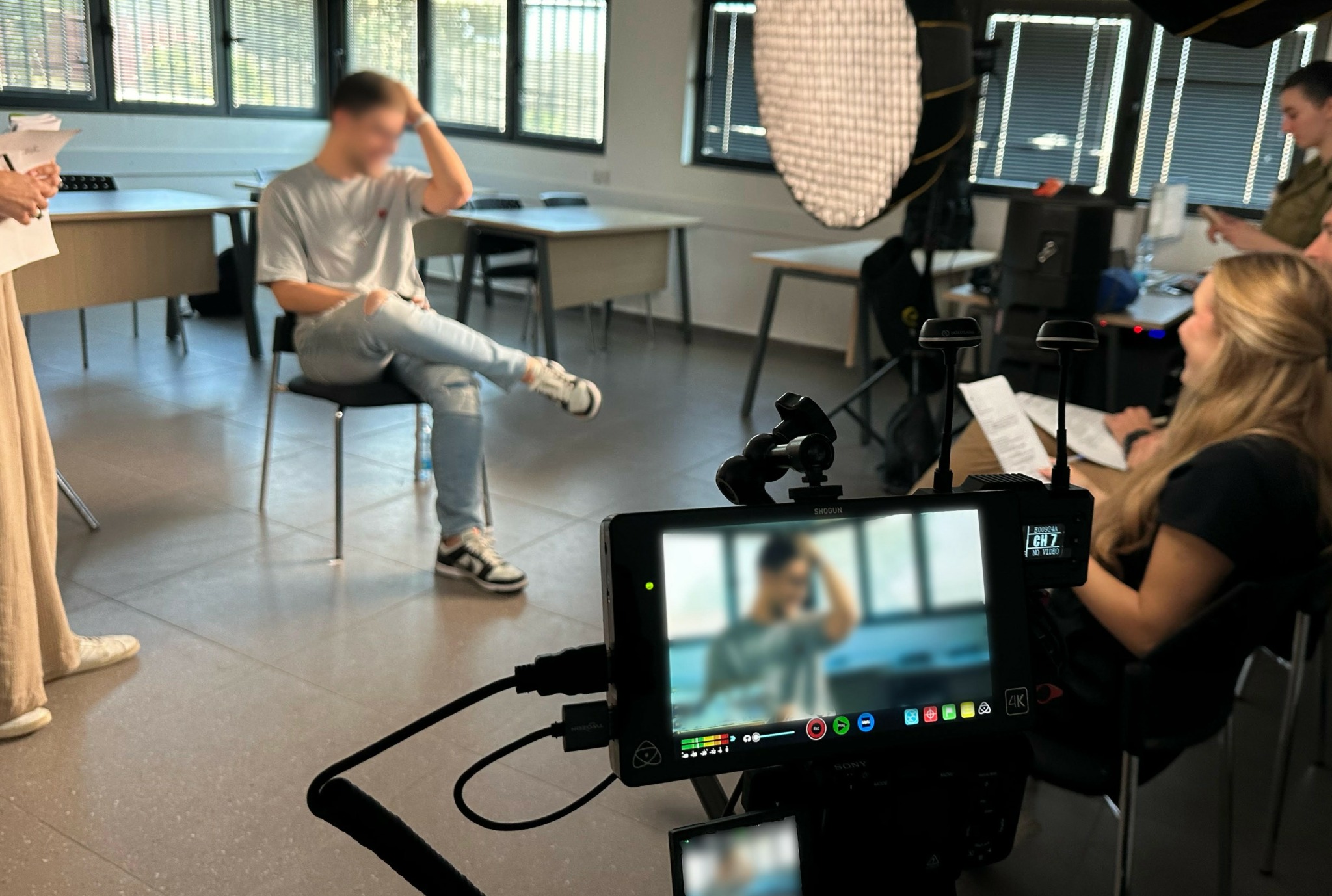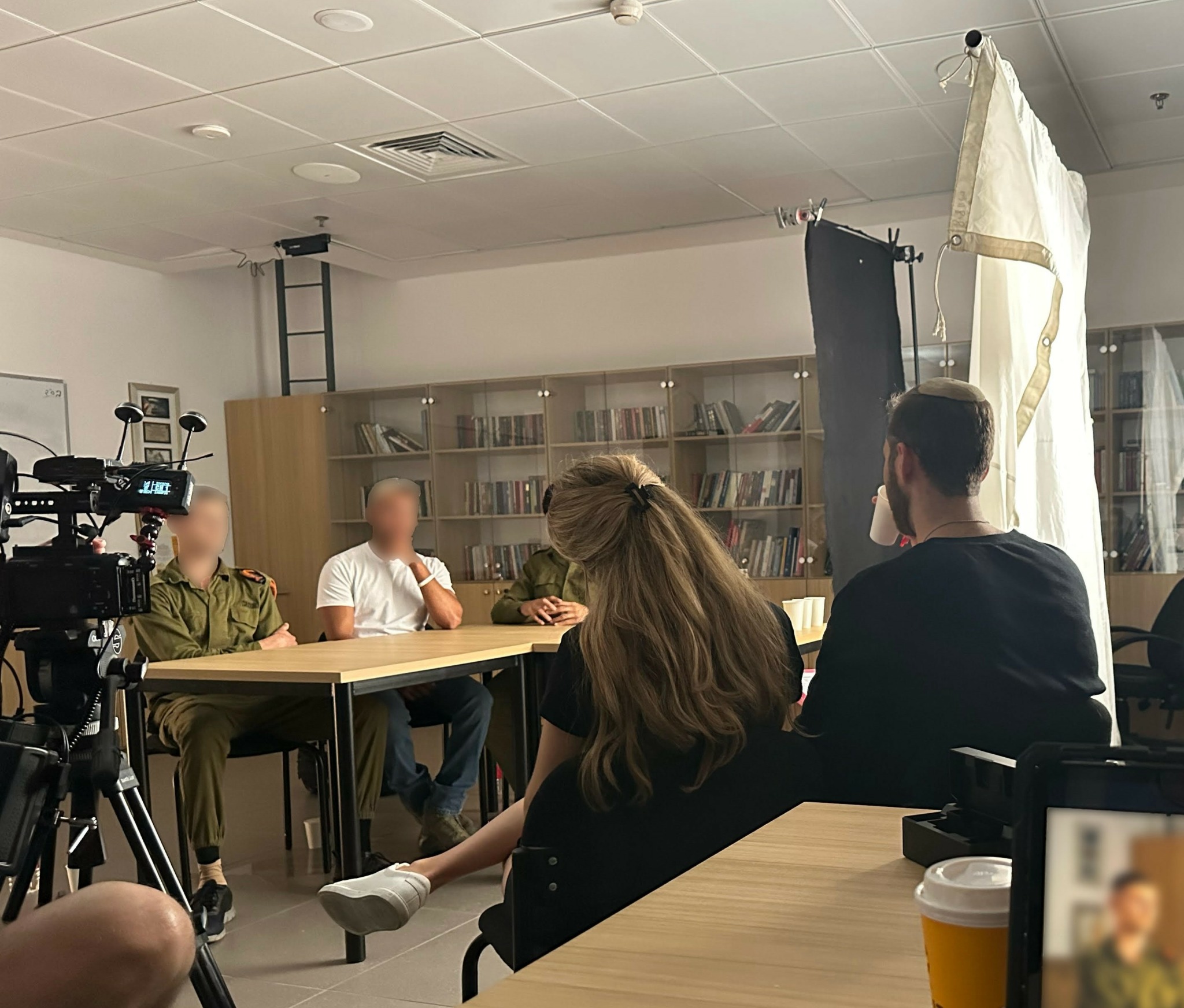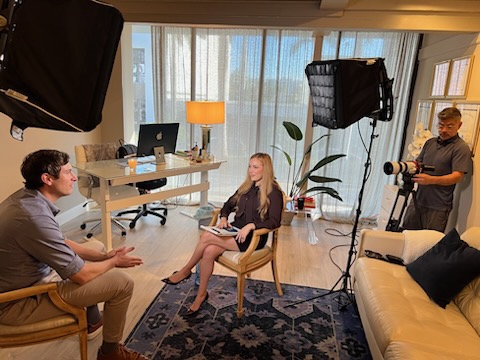We recently connected with Cassie Feldman and have shared our conversation below.
Cassie, appreciate you joining us today. We’d love to hear about the things you feel your parents did right and how those things have impacted your career and life.
Reflecting on the question: “What did your parents do right?” immediately brings to mind a deeply formative moment that shaped not only my personal development but also the essence of my career as a clinical psychologist. From a young age, my parents (my father, an Intensive Care Unit Physician and my mother, a Clinical Psychologist) modeled a unique combination of intellectual pursuit and emotional depth, which has guided my professional work and informed my personal philosophy of how I conduct myself personally.
A seminal experience occurred when I was about ten years old. My father, an Intensive Care Unit physician, brought me to the hospital to visit with patients in the ICU. Many were critically ill, intubated, and unable to speak. I was in foreign territory and was initially frightened by what was unfamiliar. But my father modeled something that has stayed with me—connecting with someone during a deep moment of pain does not always require words. He encouraged me to sit with these patients and to simply be present with them. I quickly realized that even in their silence, these patients were responding to our presence, and I was learning that connection could transcend language. That day, I began to understand the power of simply “being with” someone.
This early experience not only prompted the cultivation of essential clinical skills but also made me keenly aware of something that many people don’t actively learn: the ability to sit with someone in their ultimate pain, without trying to fix it or make it go away. Most people are uncomfortable in the face of suffering and instinctively want to counteract it, but I have come to understand that the most transformative, helpful, and healing thing you can do in the midst of someone’s worst moment is to be what is called an “empathic witness” in the literature. This lesson at age ten foreshadowed so much of my professional work as a psychologist.
This early lesson became especially relevant while responding to the Champlain Towers Surfside building collapse. There was no way to take away the the victim’s and victim’s families’ pain or offer solutions that could ease the unimaginable loss. In those moments, there was no value in trying to counteract the immense suffering. Instead, the most meaningful thing anyone could offer was their presence—to simply witness their pain and allow them to express it in whatever way they needed. My role there, in its purest form, was to be there, to acknowledge their grief, and to validate their experience without trying to “fix” it.
These early lessons from my parents—to value intellectual exploration while also being open to the full range of human emotions and experience—have profoundly shaped how I approach my work today. Whether it’s guiding patients through difficult diagnoses, processing grief with families, or simply holding space for someone in crisis, I draw on that early experience. I have learned that healing is not about eliminating pain but about being with someone through it, offering empathy, and acknowledging the depths of their experience.
This blend of intellect and empathy, which my parents instilled in me, is at the core of how I engage with my patients and the world around me. Their influence has allowed me to see that being an empathic witness can be one of the most powerful forms of support we can offer another human being.

Awesome – so before we get into the rest of our questions, can you briefly introduce yourself to our readers.
Thank you again for the opportunity to be featured! I’m Dr. Cassondra (Cassie) Feldman, a licensed clinical psychologist specializing in health psychology, trauma-informed care, and interdisciplinary collaboration. Growing up with both a father in intensive care and a mother as a clinical psychologist, I was shaped early on by a commitment to addressing both the mind and body, which guides my work today.
In my private practice, I focus on helping individuals navigate various stressors, health conditions, trauma, and life transitions. I provide integrative, psychoanalytically informed psychotherapy focusing on creating a safe, compassionate space for individuals to process complex emotional experiences. I am deeply committed to the interdisciplinary aspect of my work, having collaborated with medical professionals to support patients with both psychological and physical challenges. For example, my experience providing services to U.S. military veterans at the VA, including work on interdisciplinary teams for oncology, renal dialysis, and women’s health units, has strengthened my ability to provide holistic care.
I also serve as adjunct faculty in the Clinical Psychology Doctoral Program at Nova Southeastern University, and I teach psychiatry residents at Memorial Regional Hospital and family medicine residents at Baptist West Kendall Hospital. Teaching is one of the most fun aspects of my job and has been an incredibly rewarding part of my career, allowing me to share my expertise and shape the next generation of clinicians.
In addition to my clinical and teaching responsibilities, I have held a number of leadership roles and am currently, actively collaborating on research as a co-principal investigator, focusing on how to best support first responders in prolonged disaster response situations in partnership after collaborating in the disaster response at Surfside with the IDF delegation. Additionally, I’m consulting on a film about the events of the outbreak of the current war, which further extends my commitment to addressing trauma, its psychological impact. and ethical story telling. I deeply believe in the power of engaging in creative pursuits to transform pain. One of the things I emphasize to my students is that there are so many cool and wonderful things you can do as a psychologist – it doesn’t only ever look one way.
One of the professional experiences that has been most profound in my career has been my response to the Champlain Towers Surfside building collapse. In that moment, it was not about finding the right words or offering a solution—it was about being present, about witnessing the pain of those impacted, and offering support as an “empathic witness.” This experience, along with others, has solidified my belief that healing often comes from simply being with someone in their suffering, rather than trying to eliminate it. It also highlighted the importance of community in healing, connection, and the power of unity.
What sets me apart is my ability to combine this empathy with a deep clinical understanding, integrating evidence-based practices with a human-centered approach. For me, healing involves addressing the whole person—mind, body, and emotional experience. Whether through my clinical practice, teaching, or research, my goal is to help individuals navigate their experience while fostering a sense of meaning and deeper understanding.

Can you tell us about a time you’ve had to pivot?
When I first got licensed and moved back to Miami from New York after the completion of my fellowship, I found myself at a crossroads. I had an incredible opportunity to run the psycho-oncology unit at a prestigious hospital. The position came with guaranteed pay, benefits, and stability—things that, as someone who gravitates toward certainty, were very appealing. Their were downsides to weigh as well, but it was a solid and secure path.
On the other hand, I had the chance to build my own private practice, which meant freedom to create the kind of work-life balance I wanted, but it came with significant risk. I knew that building a practice could take years, and there were no guarantees. I’d be giving up stability for uncertainty and knew it wouldn’t be easy.
I spent a lot of time deliberating—and lost more sleep over it than I’d like to admit! But when I really plugged into what I wanted as my ultimate goal, it became clear that I didn’t just want a job. I wanted to have my career, be my own boss, run my own business, and have the freedom to explore diverse opportunities, whether that meant working in clinical practice, teaching, or consulting. So, I took the leap of faith and decided to pursue private practice.
It wasn’t easy, and there were plenty of challenges along the way. But looking back, I’m so glad I made that choice. Building my practice allowed me to craft a career that aligns with my values and long-term goals, and despite the hard work, the flexibility and fulfillment I now have make it all worthwhile. I have still been able to retain my link and interest to health psychology through teaching a class about Health and Medical Psychology and training medical doctors. I have the best of all the worlds which I do not take for granted.

Training and knowledge matter of course, but beyond that what do you think matters most in terms of succeeding in your field?
Other than training and knowledge, I believe that the most helpful qualities for succeeding in my field are curiosity, openness, and humility. Being a good psychologist is more than just knowing the theories and techniques… It requires being open-minded, self-aware, and intuitive.
Curiosity is essential. Every person’s experience is unique. In graduate school I had a professor and mentor that would say: “if all you have in your toolbox is a hammer, everything will look like a nail.” Even if I’ve seen similar situations before, I approach each client with a genuine desire to understand their uniqueness, their particular story, and their intimate perspective of their experience. Openness allows me to connect more deeply with people and not foreclose their experience. It’s about creating a space where individuals feel safe to share their experiences and collaborate to be curious together. My job isn’t to impose my own beliefs on someone, my job is to help someone think.
Perhaps most important to my work is humility. There’s a balance between being confident in what I know and having the insight to recognize my limitations and what I don’t know. It’s about acknowledging that no matter how much training or experience I have, I can’t fully know someone’s lived experience in every aspect they experience their life. Humility means not making assumptions, being willing to ask questions, and understanding that my role isn’t to have all the answers but to be present and offer guidance where I can. I am very okay with being wrong and actively invite my clients to disagree with any interpretations.
Contact Info:
- Website: https://www.drcfeldman.com




Image Credits
N/A


